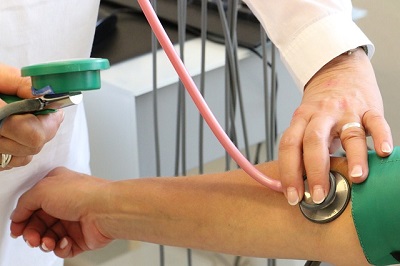What is Congestive Prostatitis?
Have you ever experienced slight discomfort in your lower abdomen or perineum or felt something abnormal when urinating? And then you have been told after examination that it might be congestive prostatitis?

Congestive prostatitis refers to a pathological state of excessive congestion in the prostate caused by various factors, leading to a series of inflammatory reactions and clinical symptoms. Although no bacteria or other pathogenic microorganisms are found in the prostate fluid examination, inflammatory responses in the prostate tissue exist.
So, what causes this congestive inflammation in the prostate?
First, irregular sexual activity is an essential factor. Excessive sexual activity keeps the prostate in a state of congestion repeatedly, much like a machine operating under heavy load for a long time, which naturally leads to problems over time.
Conversely, prolonged abstinence causes prostate fluid to accumulate in the gland, leading to overfilling of the prostate, which also causes congestion and lays the groundwork for inflammation.
Modern lifestyle is also one of the culprits of congestive prostatitis. For many office workers, sitting at a desk for long hours without moving leads to compression of the pelvis and prostate, obstructing blood circulation and causing local congestion.
Additionally, cycling enthusiasts may not realize that the constant friction between the perineum and the bike seat, which stimulates the prostate, can also lead to prostate congestion.
In terms of diet, long-term heavy drinking can stimulate the prostate, causing its blood vessels to dilate and congest. Friends who love spicy food should also be cautious, as spicy foods like chili peppers and Sichuan peppercorns have strong irritant properties that cause the prostate's blood vessels to dilate and congest, increasing the risk of congestive prostatitis.
Psychological factors should not be underestimated either. In this fast-paced, high-pressure era, anxiety, depression, and tension often follow like shadows. Prolonged exposure to these negative emotions can cause autonomic nervous system dysfunction, leading to dysregulation of prostate blood vessel constriction and dilation, resulting in congestion.
Additionally, local exposure to cold is another trigger. When cold weather hits, the excitability of the sympathetic nerves in the prostate increases, causing gland contraction and blood vessel dilation, which can gradually lead to chronic congestion.
If you have already been diagnosed with congestive prostatitis, there is no need to be overly anxious or panic. Timely medical consultation and actively cooperating with the doctor's treatment can effectively control the condition and alleviate symptoms:
Congestive prostatitis is not necessarily caused by bacterial infection, but sometimes doctors may empirically use antibiotics, such as quinolones and macrolides, to eliminate any potential infection.
If antibiotics are ineffective or the condition progresses to a chronic stage, the Diuretic and Anti-inflammatory Pill is better. The pill has the effects of clearing heat and detoxifying, promoting blood circulation to remove blood stasis, and promoting urination to relieve stranguria, which can help alleviate inflammation and discomfort.
Physical therapies include prostate massage, thermotherapy (such as warm water sitz baths and hot compresses), transrectal microwave therapy, and transurethral prostate electrotherapy. These methods can promote blood circulation in the prostate, relieve muscle spasms, and reduce inflammatory reactions.
Additionally, patients need to develop good living habits. They should avoid prolonged sitting and long rides, engage in moderate exercise, keep warm and avoid local exposure to cold, maintain regular sexual activity, eat a light diet, quit smoking and drinking, and avoid spicy and irritating foods. They should also maintain a cheerful mood and avoid anxiety and tension.
In short, congestive prostatitis results from a combination of various factors. Understanding its causes and harms and taking proactive preventive and treatment measures can protect our prostate health and make life better.
You may also be interested in:
Prostate Congestion and Prostatitis: Does the Former Lead to the Latter?



